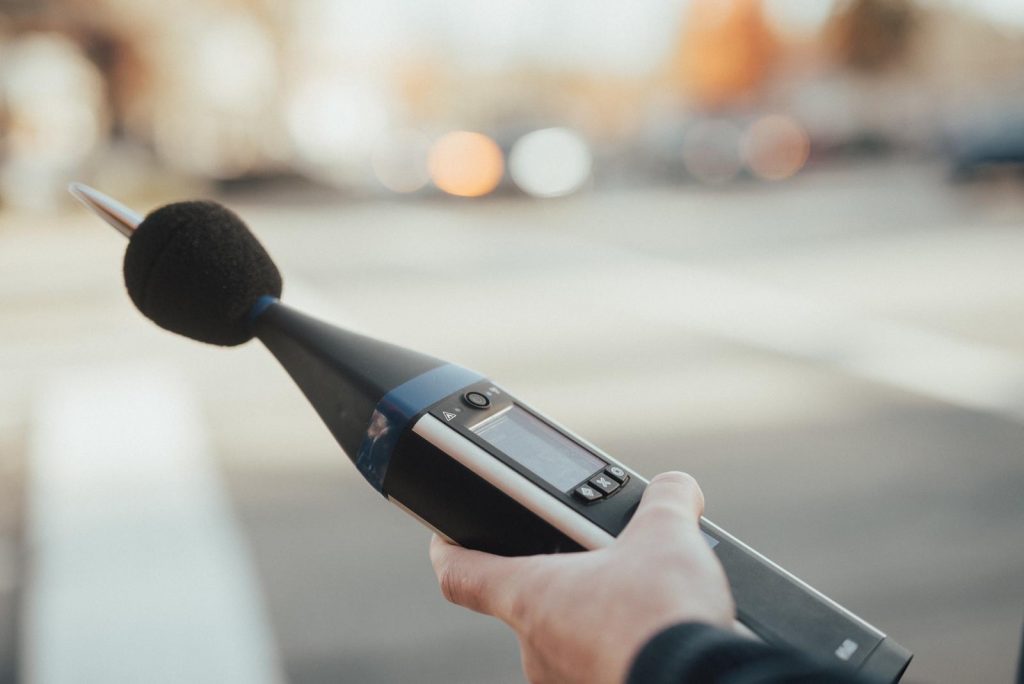BSR and NVH: what influence do polymer plain bearings have on noise generation?
Sebastian Bloechl | 12. May 2020
The application areas for plain bearings are enormous and can be found in almost all industries. As a rule, the main focus is on minimising wear and friction of the counter partners. But nowadays these requirements for the bearing point are supplemented by an essential detail. With the trend towards ever quieter vehicles and car interiors, noise reduction is now one of the core characteristics of a plain bearing in the automotive industry.

Why is noise reduction becoming increasingly important?
Electric vehicles run quietly and almost without engine noise. Motor vehicles with combustion engines are equipped with ever higher quality insulation to achieve the quietest possible vehicle interior. In addition, a car is subjected to enormous mechanical loads over its lifetime. For this reason, engineers are focusing more and more on minimisation of noise in the systems.
There is a good reason for this, because although permanent noise is generally not relevant to safety, it is decisive for customer satisfaction. It is not uncommon for a customer to decide on a certain vehicle brand due to the acoustics of the interior. After all, nobody wants to have to endure a permanent rattle. For this reason, developers are constantly looking for the right bearing solution to reduce annoying background noise.
What are BSR and NVH noise and how do they occur?
First of all, about the two commonly used abbreviations:
BSR = Buzz, Squeak and Rattle
NVH = Noise, Vibration and Harshness
BSR and NVH are all noises that are generated by components and assemblies in the vehicle and can be triggered by various internal and external sources. Vibrations in combination with speed and the existing loads can lead to clearly audible background noise. Here the bearing position and the solution used is a decisive factor. This is often the cause of noise generated by, among other things, the car seat structure, handbrake, window regulator or armrest.
How do polymer plain bearings help to reduce BSR and NVH noise?
iglidur plain bearings made of polymer are more elastic and flexible than metallic bearings. A noise reduction can be achieved by using a dampening bearing material.
Moreover, iglidur materials are tribologically optimised. This means that solid lubricants are embedded within the materials over the entire wall thickness. Additional lubricants and greases are therefore completely unnecessary. This guarantees consistent performance over the entire service life and there is no risk of evaporation of lubricant, which could lead to wear and noise.
This advantage of iglidur plain bearings behaves similarly in comparison with susceptible and thin PTFE coatings, which are common in plain bearings made of metal. This thin sliding surface can already be damaged during assembly or worn away over the running time. This in turn would result in increased noise. In comparison, igus polymer plain bearings offer homogeneously distributed dry lubricants over the entire wall thickness – avoiding this risk and guaranteeing a quiet interior.

We would be pleased to present further advantages and possible applications of our tribologically optimised polymer plain bearings.
Do not hesitate to call me:
Sebastian Bloechl
Phone: +49(0)2203-9649-7718
Mobile: +49(0)173-4537974
E-mail: sbloechl@igus.net
Free online consultation: igus Chat, Teams, Skype, WhatsApp, WeChat
Follow us on: LinkedIn, Instagram, Facebook
Have fun browsing and thanks for your time.
PS: whether plain bearings, spherical bearings, linear bearings, ball bearings, special sliders, gears or individually customised design, the iglidur Designer leaves nothing to be desired. Request part now and receive a quote by tonight.
More information: Automotive industry, polymer plain bearings for automotive interior, exterior and engine compartment applications

